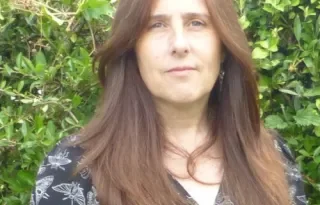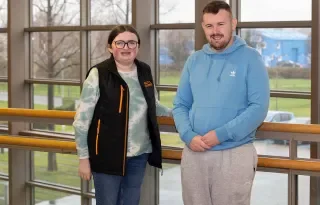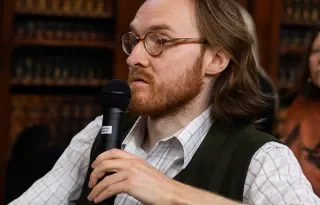School of Business and Humanities hosts series of activities to enhance Education for Sustainable Development (ESD)
The School of Business and Humanities at DkIT recently held a series of hands-on events, designed to help lecturers embed Education for Sustainable Development (ESD) in to their modules and Continuous Assessments (CA). The events, funded by SATLE – the Strategic Alignment of Teaching and Learning Enhancement Funding in Higher Education, were part of the Institute’s commitment to progress the DkIT Sustainability Strategy and to be a sustainable and impactful campus.
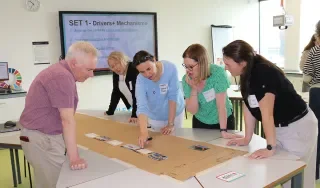
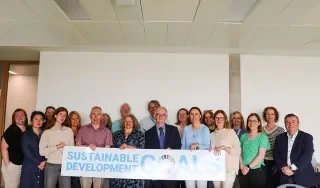
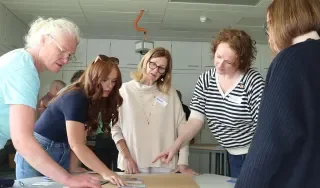
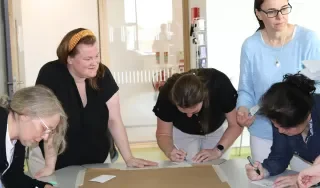
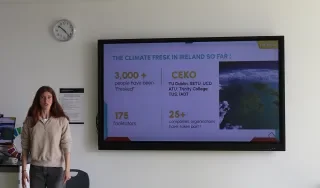
The events took place over three days and included a Climate Fresk collaborative workshop, sessions focused on embedding sustainability classroom activities and CAs, and a visit to the Rediscovery Centre at The National Centre for the Circular Economy.
The first day of activity focused around the Climate Fresk, an innovative, collaborative workshop designed to raise awareness and educate people about climate change through a hands-on, interactive experience. Facilitated by Sustainability Consultants, Caoimhe Sweetman de Clar and Susan Doyle, The Climate Fresk workshop uses a game-like format that allows participants to work together to build a large fresco (mural) that illustrates the causes, consequences, and interconnections of climate change. The workshop is based on information from the Intergovernmental Panel on Climate Change (IPCC), ensuring that it reflects the latest scientific findings. Any participant can become a Climate Fresk facilitator after a further dedicated training session due to take place next semester.
On day two, Dr Lucia Walsh, Sustainability in Education and Innovation Lead at TUD and Dr Olivia Freeman, Sustainability Education Lead/ SDG Literacy COP lead at TUD, presented innovative ideas for transforming CA and classroom activities, with a focus on teaching and learning within the School of Business and Humanities.
Dr Lucia Walsh and Dr Olivia Freeman also facilitated a Step into the Doughnut workshop catering for staff across all faculties. The Doughnut model conceptualises what it means to achieve thriving and just lives for all within the means of the planet and the role that business education and practice plays in this. The workshop is designed to introduce participants to the ideas of 'Doughnut Economics,' a model of economics which represents an ecologically safe and socially just space in which humanity can thrive in the 21st century, and this activity gave participants the opportunity to listen to and share ideas about the state of the planet, society and business.
To round off the activities, a group visited the Rediscovery Centre, The National Centre for the Circular Economy in Ballymun, led by Kevin McParland. The Rediscovery Centre’s mission is to lead Ireland’s transition to a circular economy and a sustainable future by creating a fair and inclusive society that thrives within the boundaries of our natural resources. This visit included a 90-minute workshop on the Circular Economy and Sustainability, followed by a one-hour tour of the Centre.
Christian Maas, Sustainability Manager at DkIT said:
“As a third level institution we are at the forefront of education and therefore it is essential that we integrate sustainability into our day-to-day teaching. Mary, Maeve and Kevin are leading the way by organising and facilitating the workshops, to ensure that our staff can meet these obligations in the future.
I am confident that the opportunities to embed sustainability and the Sustainable Development Goals into our teaching across the schools will continue to grow and positively impact both our community within DkIT and beyond.”
